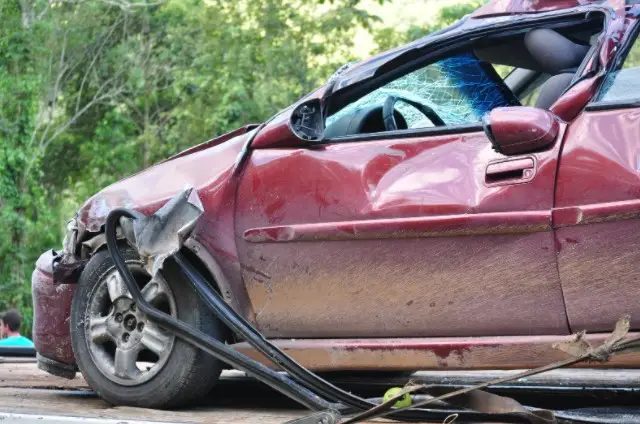“No-fault” provisions regarding accident laws state that any party to an accident will share the responsibility for the loss, and no one person will be deemed solely at fault and responsible for paying for all of the damages.

Georgia is not a no-fault state but is considered an “at fault” state. When referring to no-fault in terms of an accident, it references the type of insurance applicable in the event of a car accident. The term no-fault insurance means that the driver’s auto insurance carrier will pay for that insured’s medical bills and lost wages, regardless of the at-fault party for an auto accident. Also, with at-fault insurance, the at-fault party will be responsible for paying for the losses on account of being at fault for the accident.
Georgia Is an At-Fault State
Georgia is an at-fault state. If you are involved in a car accident and are less than 51% at fault (for example, you are deemed to be 49% at fault), you will not be responsible for paying for the damages that result from that car accident. Additionally, Georgia is a proportional comparative fault state, which means that both drivers involved in the car accident will share the fault for the accident together. It is assumed that one driver’s fault or responsibility for the car accident will tip the scales up to 51%, and when this happens, that driver pays for his damages and losses – and cannot seek reimbursement from anyone else.
What to Do After an Accident?
Immediately after an accident, it is important to document everything related to the loss. At this point, you should have called the police to the scene of the accident and given them your statement as to exactly what happened to cause the accident. Next, you will need to fill out a Motor Vehicle Crash Report in Georgia, and it goes over the details related to the crash. You’ll also want to include in the report information related to:
- Vehicle accident contributing factors
- Roadway accident contributing factors
- Weather at the time of the crash
- Operator condition
- Harmful events related to the crash
- Vision obscured in the vehicle
- Any injuries sustained by anyone in the vehicle
The Other Person’s Insurance Company
Some people exchange insurance information at the scene of an accident and get a telephone call from the other person’s insurance company. Many people do not want to talk to the other person’s insurance company, regardless of who is at fault for the loss. It could be beneficial to have an experienced attorney run interference for you when dealing with the other person’s insurance company. That is where we come in. We can help you safely navigate this process after the losses associated with a car accident.
If you have been in a car accident in Georgia, give us a call at the CEO Lawyer Personal Injury Law Firm. We can go over your car accident details to help you understand the fault, who is responsible for reimbursing for losses and damages, and how to apply laws related to car accidents in these cases. Our injury and accident attorneys are here for you every step of the way and will work with you to a successful conclusion. Just call today!



